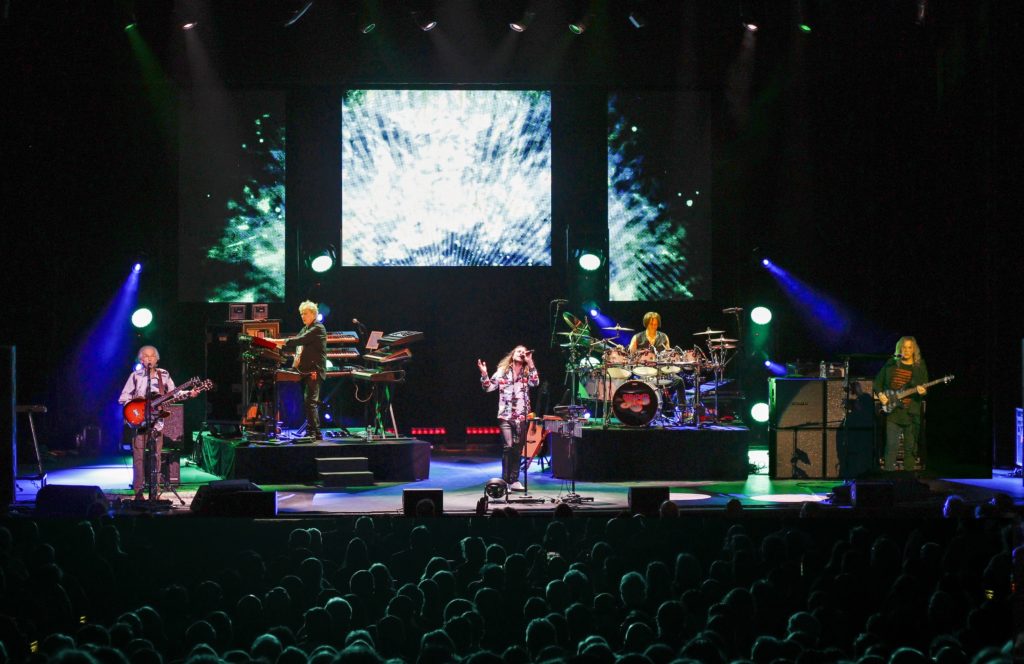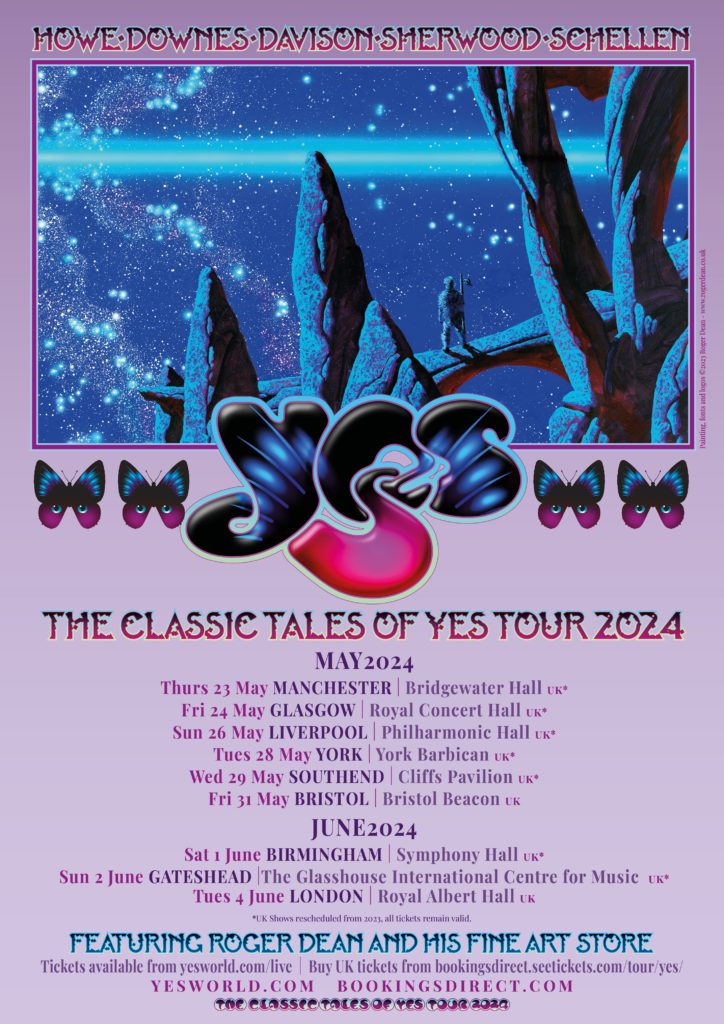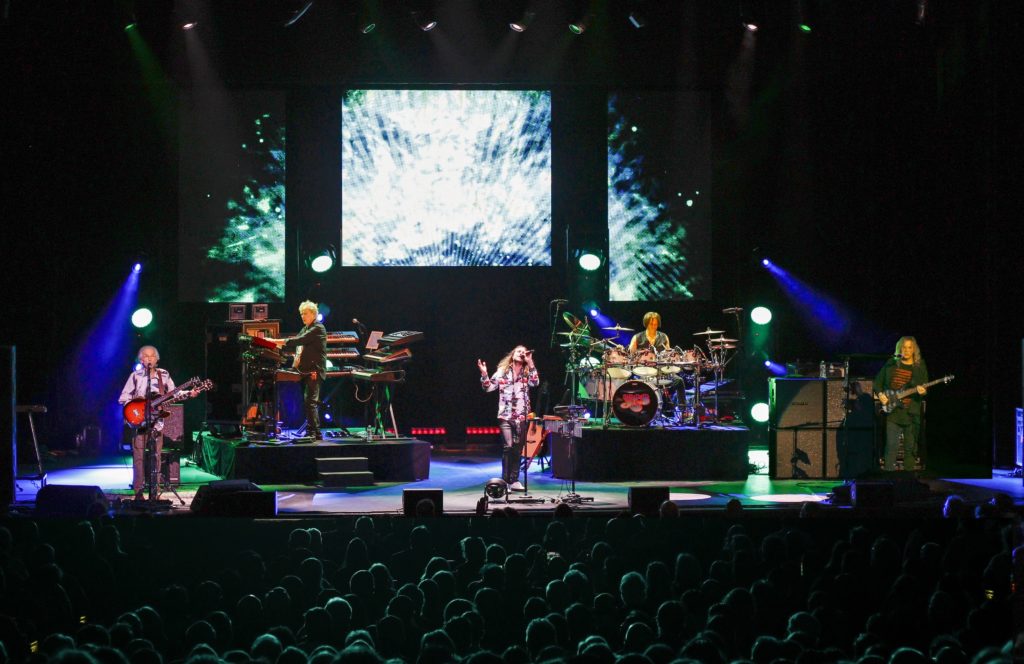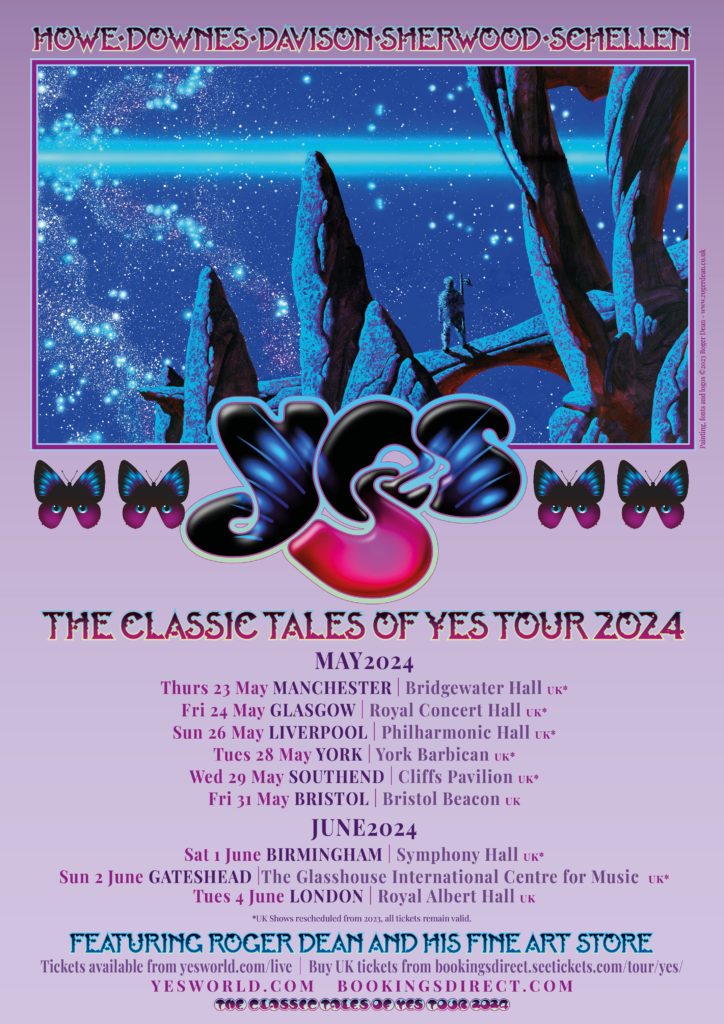
YES know how to play the long game. In the second half of their fifth decade as a band, this incarnation is led ostensibly by Steve Howe, who first signed on in 1970.
It is Howe’s skilfully selected setlist that lifts this concert, and gives it an appeal beyond the die-hards. Chosen with the same care Howe puts into his guitar playing, over two hours, two sets and 12 songs, they charted many of the interesting points on the Yes musical map.
With any longstanding group, there are line-up changes, and while there have been some negative reviews of their most recent album, May 2023’s Mirror To The Sky, it was clear they remain a potent musical proposition. Cut From The Stars, the sole ‘new’ track in the show, was there by merit, driven by some exuberant bass.
Yes’s long-form music is a byword for difficult, and as Howe observed late in the second set, “Yes members have to put the work in”. It was akin to watching an orchestra where everyone was the soloist – holding the entire set in their heads while playing for and with one another.
The first half showcased Howe, who played between six and seven guitars during the set (I lost count). With the air of a wizened professor at 77, his dexterity was amazing, switching styles without batting an eye. Like Yes, this is music that is hard for a newcomer to love. It takes effort, and Howe’s guitar work is the same, not people pleasing, but always coming at a composition from an expected angle.
The opening Machine Messiah showed off the heavier side to the band, starting with crunching chords before taking off around the ten-minute mark with some wonderfully propulsive ensemble playing.
Arguably the most memorable moments were when Howe’s guitar tech wheeled on a second guitar on a stand. Still with one instrument around his neck, Howe then produced the most lyrical sounds of the evening, and in this way he closed out Turn Of The Century to finish the first set.
The love the band and the audience have for the music is a powerful force, best experienced in person – and from his skips and hops, Howe looked totally absorbed in delivering a great performance.

Jon Davison was game on vocals, taking on Jon Anderson’s lyrics in choral style. He is a wonderful singer, but the lyrics were generally pretty woeful. Don’t Kill The Whale being a good, if well intentioned, example.
Given the imaginative musical leaps in motion around him, the singer often had to sing the same things over and over – but never quite run into the ground.
There were some affecting moments with just Howe and Davison – and there is obvious rapport and affection between the men on stage. Talking of choir boys, it transpires that keyboard player Geoff Downes began his musical apprenticeship at York Minster. He had his hands full too, with eight keyboards to man, plus pedals.
There was too much intricacy to keep up with, but there was no room for noodling or drum solos mercifully. Stage lighting was also deliberately simple.
The second half was perhaps the better of the two, despite starting with the weakest number of the night (South Side Of The Sky). It shone a light on the incredible bass shapes produced by Billy Sherwood, very much a lead instrument.
It’s unlikely Yes get many plaudits for their sonic voyages on Tales From Topographic Oceans. This 1973 album marks an outer limit, even in the expanded prog universe, and now serves more as a warning to others not to take themselves so seriously. It was striking, therefore, that their 20-minute distillation of this 80-minute work was a real highlight (Howe having told CharlesHutchPress this was “a mini-representation…visiting each of the sides” in his interview.)
Not listening too closely to the words, but feeling the emotion, the interplay between the players, and the thoughtful way the sections had been stitched together, was a veritable masterclass.
The audience were on their feet for the rousing encore Roundabout, and by Starship Trooper we were as one in our appreciation of this vibrant, iconic musical institution that is Yes.
Review by Paul Rhodes


